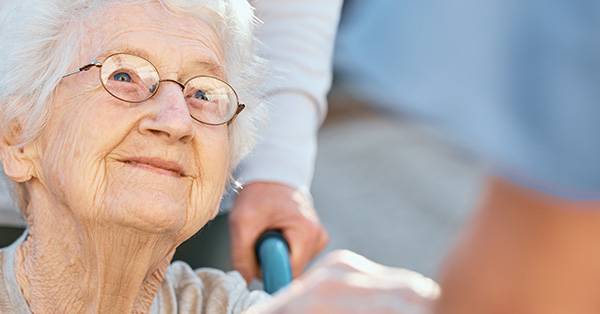- Solutions
- Solutions
- Home Health
- Hospice
- Life Plan Community
- Palliative Care
- Private Duty
- Senior Living
- Skilled Nursing
- Skilled Nursing
- Skilled Nursing Software
- Advanced Insights
- Customer relationship management
- Data and analytics
- Financial & operations management
- Marketing
- Nutrition management
- Referral management
- Regulatory compliance
- Retail management
- Resident engagement
- Revenue cycle management
- Skilled nursing interoperability
- Partners
- Blogs
- Resources
- About
- User Conference

PDPM nursing documentation requirements: what isn’t new
Since October 1, 2019, the PDPM nursing documentation burden has shifted. As patients enter skilled nursing facilities from acute care, they presume that they have full coverage for SNF services.
The Medicare Benefit Policy Manual “Coverage of Extended Care (SNF) Services” clearly outlines the requirements for coverage when a patient is admitted for skilled nursing services1. None of this is new but the burden has shifted; because PDPM nursing documentation has been historically met by therapy.
When performing Medicare charting keep in mind the following:
- Nursing documentation must reflect the need for the continuation of skilled care.
- Staff must document on Medicare A residents once every 24 hours. However, staff should document more often if the resident has a warranted condition.
- Documentation should include:
- the resident’s vital signs
- the reason why the resident is receiving skilled services
- a detailed description of the resident’s condition at that time.
- Additionally, documentation should be specific to the clinical reasons for coverage, services delivered, and the response to care.
The four principle skilled nursing services that require Medicare charting is:
1. Management and evaluation of a care plan
- The development, management, and evaluation of a patient care plan, based on the physician’s orders. In addition, any supporting documentation constituting skilled nursing services.
- Nurses need to document the services that require the involvement of skilled personnel to meet the patient’s needs. In an effort to promote recovery, and ensure medical safety.
2. Observation and assessment of a patient’s condition
- Additionally, documentation must reflect the likelihood of change in a patient’s condition. For example, if skilled personnel identifies the possible need to modify treatment to help stabilize the condition.
3. Teaching and training activities
- Documentation has to thoroughly describe all efforts that have been made to educate the patient/caregiver and their responses to the training.
- If applicable, the medical record should also describe the reason for the failure of any educational attempts.
- Topics of teaching include colostomy care, insulin administration, prosthesis management, catheter care, G-tube feedings, IV access sites, and wound care.
4. Direct skilled nursing services to patients
- Nursing services are inherently complex. Because of this, these services can only be performed by or under the supervision of a registered nurse or a licensed practical (vocational) nurse.
- Some examples of direct skilled nursing services are IV feeding (must meet criteria), IV meds, suctioning, tracheostomy care, rehabilitation nursing procedures, ulcer care, tube feedings, care for surgical wounds, and diabetes management with injections.
To prepare for the anticipated need for increased nursing documentation related to PDPM, the clinical leaders of MatrixCare are reviewing current documentation resources and identifying gaps. As a result, we will continue to improve and seek your guidance to ensure we are developing in the right direction.
Find more information on PDPM here.
Learn more about our solutions:
1 30.3 Direct Skilled Nursing Services to Patients (Rev.179, Issued: 01-14-14, Effective: 01-07-04, Implementation: 01-07-14) A3-3132.2, SNF-214.2
Request a demo today for a closer look at MatrixCare.
See what MatrixCare can do for you
Kevin Whitehurst
Kevin Keith Whitehurst, Senior Vice President, Skilled Nursing Solutions, has been a key player in LTPAC technology since 1990. Whitehurst has held many leadership positions including IT Director for one of the first developers of MDS software systems to, most recently, SVP, Client Services for MatrixCare. In his current role, he is responsible for the success of the Skilled Nursing Solutions Group and oversees Product Management, Professional Services, Sales and Marketing, and Client Support for that group. A 26 year veteran, Whitehurst has dedicated his career to improving Skilled Nursing Providers experience with technology. Whitehurst holds degrees from San Bernardino Valley College and the Los Angeles School of Business and also served in the U.S Air Force.
Related Posts


See MatrixCare in action
Start by having a call with one of our experts to see our platform in action.
MatrixCare offers industry-leading software solutions. Thousands of facility-based and home-based care organizations trust us to help them improve efficiency and provide exceptional care.






